MSc Environmental Engineering
ApplyKey facts
- Start date: January & September
- Accreditation: Institution of Civil Engineers, Institution of Structural Engineers, Chartered Institution of Highways and Transportation & Institute of Highway Engineers, Permanent Way Institution (PWI)
- Study mode and duration: 12 months full-time; 24 or 36 months part-time* (on campus); 36 months (distance learning); *September start only.
Athena Swan Gold Award for supporting gender equality in engineering
Study with us
- provides the knowledge and skills to equip you for a career in either environmental engineering or environmental science
- develop interdisciplinary perception of environmental problems and the ability to work towards finding solutions
- study challenging real-world issues
- carry out an industrial project
Accreditation
This degree is accredited by the
- Institution of Civil Engineers (ICE)
- Institution of Structural Engineers (IStructE)
- Chartered Institution of Highways and Transportation (CIHT)
- Institute of Highway Engineers (IHE)
- Permanent Way Institution (PWI)
on behalf of the Engineering Council as: meeting the requirements for Further Learning for a Chartered Engineer (CEng) for candidates who have already acquired a partial CEng accredited undergraduate first degree.*
See Joint Board of Moderators website for further information.
*It should be noted that candidates completing the MSc who hold an underpinning accredited IEng degree or a non-accredited bachelor degree will need to apply for an academic assessment to determine whether they will meet the educational base for CEng registration.
The Place of Useful Learning
UK University of the Year
Daily Mail University of the Year Awards 2026
Scottish University of the Year
The Sunday Times' Good University Guide 2026
Why this course?
MSc Environmental Engineering is closely aligned with industry’s demands, this course meets the needs of:
- urban regeneration
- land contamination management
- environmental protection
- infrastructure investment portfolios in Scotland and worldwide
A distinctive feature of this course is its topical nature. Glasgow has been undergoing extensive urban regeneration, including building on land that's been contaminated in the past. You’ll have challenging 'real world' issues to study close to the University. From this experience, you'll become able to translate the principles of environmental engineering that you have learned into national and international context.
Studying in the Department of Civil & Environmental Engineering
Watch our video to find out more about more.

What you’ll study
You'll undertake five core classes and a range of optional classes. Each class is normally taught for two hours per week over eight to 11 weeks.
Following successful completion of the taught component, you’ll undertake a dissertation from June to August. In addition to the dissertation topics proposed by course leaders and industrial partners, you may propose topics that can be of relevance to your future career or your employer.
For part-time study the modules can be taken over two years (attending classes typically one day per week) with the dissertation completed in Years 2 or 3.
Work placement
As part of the class Independent Study in Collaboration with Industry you can apply to work with industry projects. Industrial partners often sponsor projects applicable for student dissertations.
Attendance
One year full-time study involves attendance at classes over two terms, plus a dissertation during the third term.
Part-time (open to UK/EU students only) involves class attendance in Years 1 & 2 and a dissertation in Years 2 or 3.
Flexible learning
If you can't attend this course full-time on campus, there are various Flexible Learning options available to you.
Distance learning
You can also study this course by online Distance Learning, which is based on three years part-time study of 60 credits per year, offering a flexible learning mode of study.
This allows you to complete the course by studying online at a time that suits you, without attending at our Glasgow campus, aloowing you to balance your existing work and family commitments. This option is suitable for students located anywhere in the world.
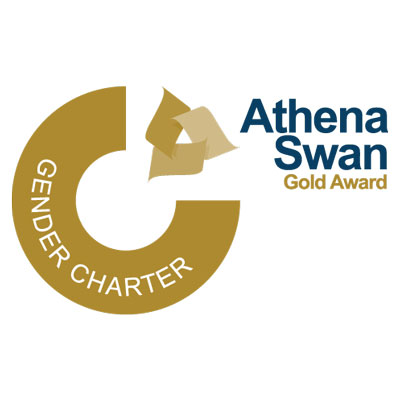
We've been awarded the Athena Swan Gold Award for our commitment to improve equality, and being an inclusive and supportive place to work and study.
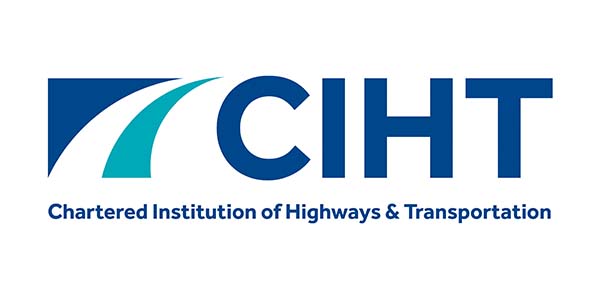
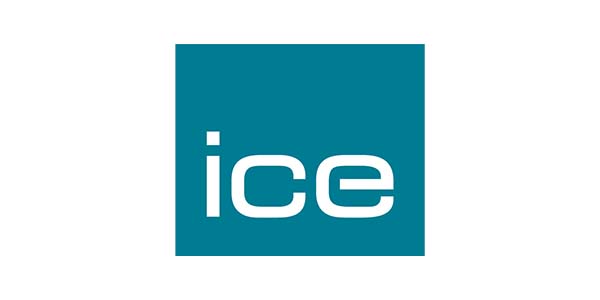
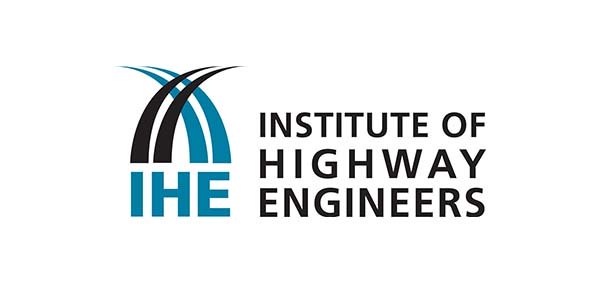
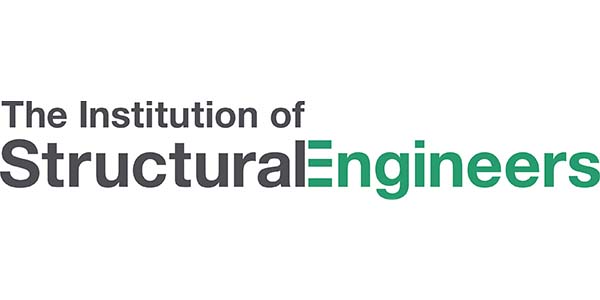
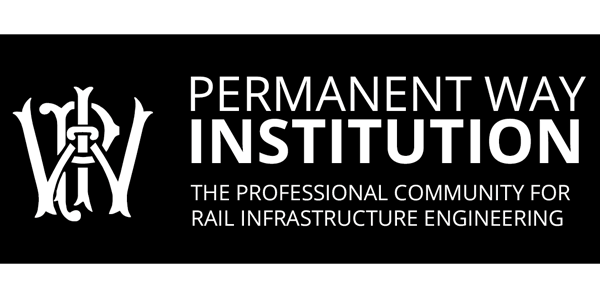
Facilities
Our £6 million state-of-the-art laboratory facilities are well-equipped with high-technological instrumentation and available space to investigate:
- environmental & molecular microbiology
- environmental chemistry
- analytical chemistry
- geomechanics & soil quality
- structural design & material science
Living Laboratory for Sustainability
You'll benefit from this innovative initiative which encourages students and researchers to carry out projects that aim to work towards the enhancement of the University’s sustainability. Get involved with Sustainable Strathclyde.
Teaching staff
Course coordinator
Key lecturers
Most of our staff are also part of the Centre for Water, Environment, Sustainability & Public Health.
Course content
A typical selection of classes offered on the programme are outlined below. Please note that these classes may be subject to change.
Distance Learning
Classes marked * are available for distance learning, in addition to on campus.
Environmental Geochemistry* (10 credits)
This class will explore the controls of chemical composition of water resulting from geochemical reactions in nature. Students will develop an understanding of geochemical thermodynamics, as well as an understanding of weathering.
Principles of Environmental Microbiology* (10 credits)
This class introduces microbiology in a manner that is of practical importance in environmental engineering and science.
Topics covered include:
- the microbial ecology and microbiology of dilute nutrient solutions such as lakes, subsurface environmental and biological treatment processes
- microbial physiology
- biochemistry
- biodegradation
- public health aspects of microbiology
Research methods for quantitative & qualitative approaches* (10 credits)
In this class, dedicated to the MSc and MRes students in the Department of Civil & Environmental Engineering, students will acquire familiarity with, and practice of, research techniques, and examine different ways of, and gain experience in, presenting research results. The course discusses the key principles, and practical exercises, on both quantitative and qualitative research methods, such as observation methods, survey methods, interviewing techniques and statistical methods. The course also includes discussion of ethical issues. Finally, the course covers writing skills and use of literature, which is relevant to all classes
Site Investigation & Risk Assessment* (10 credits)
This class explores the complete sequence of a site investigation:
- Desk study
- Site sampling organisation and techniques
- Data collection
- Chemical analysis
The class also covers data modelling and interpretation using risk assessment models.
Waste Management & Landfill Design* (10 credits)
This class, run by the Department of Civil and Environmental Engineering, covers organisational and regulatory aspects of waste management practice in the UK:
- legislation
- composition of domestic and industrial wastes
- storage
- collection
- reception
- disposal of solid wastes, clinical wastes, sewage sludge disposal, recycling and recovery
The class discusses common methods used in the management and treatment of solid municipal waste:
- recycling
- thermal treatment of solid waste (incineration, gasification, pyrolysis)
- biological treatment of solid waste (anaerobic digestion and composting)
- landfill as a disposal option
Choose seven from this list.
Contaminated Land* (10 credits)
Within the background of land redevelopment (residential, industrial/commercial and gardens/parks), this class, run by the Department of Civil and Environmental Engineering, aims to provide insights into the remediation of contaminated land, including the regulatory framework and risk assessment, sampling and analysis, and various remedial techniques for contaminated land.
On completion of this class you're expected to be able to:
- identify possible human health and environmental risks associated with contaminated land management
- demonstrate a working knowledge of the regulatory framework in place in the UK for contaminated land management and remediation, including relevant legislation, policies and regulations
- evaluate critically the range of technologies that may be suitable for various types of contamination present.
make informed decisions about technologies for contaminated land remediation based upon technical solutions, risk assessment & management, planning and financial constraints
Environmental Impact Assessment* (10 credits)
Environmental impact assessment (EIA) relates to the process of identifying, evaluating, and mitigating the biophysical, social, economic, cultural and other relevant effects of development proposals prior to major decisions being taken and commitments made. This class, run by the Department of Civil & Environmental Engineering but open to all MSc and MEng students across the University, introduces the methods used to predict environmental impacts, and evaluates how these may be used to integrate environmental factors into decisions.
The class draws principally on the UK planning context of environmental impact assessment of individual projects (project EIA), but also takes account of EIA experience in other countries and international organisations. Participants evaluate the quality of Environmental Statements (or EIA Reports) and of the EIA process using the Institute of Environmental Management and Assessment (IEMA) methodology.
The class discusses how EIA can be used a pro-active design tool for projects and how it can contribute to the enhancement of environmental, social and health issues. Students are also introduced to key principles of Strategic Environmental Assessment (SEA) and biodiversity net gain (BNG). Class has the contribution of key practitioners in the field and includes different case studies, such as proposed onshore and offshore windfarms.
International Environmental Law (10 credits)
This module will discuss the international legal frameworks applicable to deal with transboundary and international environmental problems, looking at the effectiveness of international litigation in dealing with global environmental challenges and analysing the relationship between legal rules and governance structures related to non-environmental fields (eg international trade and investment).
Climate change will be used as a key case study, but other global environmental problems, such as loss of biodiversity, fish stocks depletion, transboundary water pollution and over-exploitation (both surface and groundwater) will also be looked at.
Environmental Pollution Management* (10 credits)
In this class, run by the Department of Civil and Environmental Engineering, you'll develop in-depth knowledge and skills regarding the science, engineering and management of environmental pollution control approaches to protect public health. You'll benefit from research-led teaching at the interface between public health and environmental engineering, with a particular focus on risk-centred methods. Lecture sessions are complemented by industrial and government case studies in contemporary air quality management practice.
Fundamentals of Environmental Forensics* (10 credits)
This class provides you with an understanding of:
- environmental forensics as a subject
- a range of contaminants found in the environment, and their fate and transport
- approach and analytical techniques to determine the responsible parties for contamination found in the environment
- real-world applications of environmental forensics
Geographical Information Systems (GIS)* (10 credits)
This class, run by the Department of Civil and Environmental Engineering, introduces Geographical Information Systems (GIS) and spatial data analysis. The course covers the key theory with a strong focus is on practical applications. Students will develop skills to apply GIS independently to real world datasets and problems. The student will need to independently develop spatial research questions, find, or collect relevant data and perform a state-of-the-art spatial analysis. GIS is a digital tool for analysing spatial phenomena. It focusses on spatial data, so data where the location of the data is just as important as the data itself. GIS allows us to organize, visualize and analyse this data in a spatial context, so that we can interpret and understand the underlying processes. GIS can be used in a wide range of fields for example in engineering (site selection, flood risk, transport planning, impact of construction), environmental science (e.g. soil erosion, health and disease, pollutant transport, landscape visual impact assessment, wildlife preservation), business (e.g. asset management, customer relations) to policy making (e.g. urbanization, deforestation, spatial distribution of crime).
Global Water Policy* (10 credits)
This class, run by the Department of Civil and Environmental Engineering, aims to provide students with the ability to:
- recognise the issues relating to overall global water policy and its interactions with other global issues
- discuss the impact of climate change and economic development on water resources and availability
- explore the different implementation issues based on regional case studies
- explore the role of stakeholders on the acceptance and achievement of policy objectives
The class also covers water policy from an international perspective focusing on transboundary issues and a review of the Sustainable Development Goals (SDG) that tie into water law and water policy.
Hydrogeology* (10 credits)
This class will help you to:
- gain an understanding of Hydrogeology as a discipline
- discuss and explore the physical mechanisms of water movement in the subsurface
- undertake experiments in the lab that demonstrate key principals of groundwater movement
- explore hydrogeological issues based on case studies
Water & Environmental Management* (10 credits)
This class, run by the Department of Civil and Environmental Engineering, aims to develop an understanding of the physical, chemical and biological parameters within surface water and how these relate to water quality, water quality objectives and pollution control strategy. The class also provides knowledge on the design and control of water and wastewater treatment processes. On completion of this class students are expected to be able to:
- understand the properties of surface water and how alterations to these, e.g. due to pollution events, can have an impact on water quality, biodiversity and human health
- discuss the impact of legislation on surface water quality
- discuss collection and treatment of community wastewater
- discuss treatment and provision of drinking water
Independent Study in Collaboration with Industry* (10 credits)
This class, run by the Department of Civil & Environmental Engineering but open to all MSc and MEng students across the University, allows students to carry out projects and placements with industry to develop and refine professional skills while gaining credits in the process. Since 2012 students have carried out more than 300 industry projects as part of this class for a very wide range of organisations. Approval of students being able to take this module is done on a case-by-case basis by staff and industry contacts. Students are selected by competitive application and CV. Although this is a S1+S2 class, realistically most of the work is done in S2 (approximately 25% in S1 and 75% in S2). It is highly recommended that all students that are potentially interested in taking this module attend the first information session in September in week 1 of S1 (find room number by searching class CL973 in the timetables).
Water & Wastewater Treatment Design* (10 credits)
This class, run by the Department of Civil and Environmental Engineering, aims to develop a detailed understanding of treatment processes, as well as the ability to undertake design calculations sufficient to produce a concept and detailed design of a water and wastewater treatment plant. On completion of the course you'll be expected to be able to:
- recognise needs of the client and conceptualise appropriate treatment system
- understand water treatment processes, including underlying chemical, physical and biological processes
- understand legislation relevant to water and wastewater treatment and processes required to achieve objectives
- ability to manage imperfect information and uncertainty in design and calculations
Circular Economy & Transformations Towards Sustainability (10 credits)
This class initially introduces the circular economy as a framework for the development and management of a sustainable 'waste-as-resource' economic system in which production is designed to be restorative and resilient. The class then proceeds to cover a range of contemporary challenges in the practical application of circular economic principles within different sectors, incorporating presentations from leading practitioners in the field.
The implications of the concept of circular economy for research, policy, business practices and societal transformations towards sustainability are explored in detail through a mix of theory, case studies, individual and group project work. This includes:
- consideration of the role of innovation and knowledge production
- social trends and consumer behaviour
- conservation and sustainable use of energy and material resources
- climate change and environmental sustainability
- the design of business models that maximise product life and value retention
The class discusses the role of individuals and communities in the making and operation of the circular economy. You'll be challenged to identify and critically evaluate opportunities to use waste as an economic good and as the basis for commercially, socially and environmentally profitable business initiatives through the application of creative design; as well as the range of business opportunities arising from repair, reconditioning and remanufacturing activities. The class also introduces the key principles of Life Cycle Assessment (LCA), carbon measurement and management.
Environmental Economics* (10 credits)
A growing, and increasingly important, part of the work of many applied economists includes the economic analysis of environmental issues. Additionally, many professionals working in the fields of energy, the natural environment, government, or business more generally will find that their careers require some working knowledge of economic approaches to environmental problems.
The main objective of this class, run by the Department of Economics, is to provide a thorough grounding in the economics of the environment, with a particular focus on environmental protection in an international policy context. That context raises all of the issues confronted in the analysis of national and subnational environmental policy making, but also a host of others that arise from the absence of a supranational sovereign authority.
A key element of the economic approach to environmental policy is ‘value for money’ ‐ designing policy interventions that give the greatest environmental improvement for any particular budget outlay. But economic analysis also deals with questions about sustainability (and so impacts on future generations) and equity between different individuals, groups, and countries.
This class pays particular attention to international environmental problems – those that spill over national boundaries, and cannot be well‐managed by actions of individual countries alone, such as climate change and loss of biological diversity.
Public Health Studies* (10 credits)
This class, run by the Department of Civil & Environmental Engineering, develops students’ understanding of public and environmental health, and the multidisciplinary approach in preventative and proactive action to safeguarding public health.
A diverse range of subjects are covered ranging from the risk assessment approach taken with respect to protecting the public from private water supplies, to the role of environmental health professionals in the prevention of the spread of infectious disease.
The class also provides students with fundamental knowledge regarding Health Improvement/Promotion and Health Protection, including the different methods used and the variety of agencies involved.
Geographical Information Systems (10 credits)
This class, run by the Department of Civil and Environmental Engineering, introduces Geographical Information Systems (GIS) and spatial data analysis. The course covers the key theory with a strong focus is on practical applications. Students will develop skills to apply GIS independently to real world datasets and problems. The student will need to independently develop spatial research questions, find, or collect relevant data and perform a state-of-the-art spatial analysis. GIS is a digital tool for analysing spatial phenomena. It focusses on spatial data, so data where the location of the data is just as important as the data itself. GIS allows us to organize, visualize and analyse this data in a spatial context, so that we can interpret and understand the underlying processes. GIS can be used in a wide range of fields for example in engineering (site selection, flood risk, transport planning, impact of construction), environmental science (e.g. soil erosion, health and disease, pollutant transport, landscape visual impact assessment, wildlife preservation), business (e.g. asset management, customer relations) to policy making (e.g. urbanization, deforestation, spatial distribution of crime).
Entry requirements
| Academic requirements | Normally a first-class or second-class honours degree (or international equivalent) in engineering, earth sciences, environmental management, or a background in the chemical, physical, biological or mathematical sciences. Lower degree classifications may be considered if there is strength elsewhere (for example, relevant work experience, excellent final project/dissertation, very strong academic letter of reference, very strong application statement linking with career goals). You’ll need two supportive academic references and/or appropriate professional experience or achievements. |
|---|---|
| English language requirements | If English is not your first language, please visit our English language requirements page for full details of the requirements in place before making your application. |
Pre-Masters preparation course
The Pre-Masters Programme is a preparation course held at the University of Strathclyde International Study Centre, for international students (non-UK/Ireland) who do not meet the academic entry requirements for a Masters degree at University of Strathclyde.
Upon successful completion, you'll be able to progress to this degree course at the University of Strathclyde.

The most valuable thing I learned and experienced was the broad scope of the environmental engineering field and the critical role of teamwork in environmental projects.
MSc Environmental Engineering student
Chat to a student ambassador
Want to know more about what it’s like to be a student at the University of Strathclyde? A selection of our current students are here to help!
Our Unibuddy ambassadors can answer all the questions you might have about courses and studying at Strathclyde, along with offering insight into their experiences of life in Glasgow and Scotland.
Fees & funding
All fees quoted are for full-time courses and per academic year unless stated otherwise.
Please note:
- for courses that have a January 2026 start date, 2025/26 academic year fees will apply
- for courses that have a September 2026 start date, 2026/27 academic year fees will apply
Fees may be subject to updates to maintain accuracy. Tuition fees will be notified in your offer letter.
All fees are in £ sterling, unless otherwise stated, and may be subject to revision.
Annual revision of fees
Students on programmes of study of more than one year (or studying standalone modules) should be aware that the majority of fees will increase annually.
The University will take a range of factors into account, including, but not limited to, UK inflation, changes in delivery costs and changes in Scottish and/or UK Government funding. Changes in fees will be published on the University website in October each year for the following year of study and any annual increase will be capped at a maximum of 10% per year. This cap will apply to fees from 2026/27 onwards, which will not increase by more than 10% from the previous year for continuing students.
| Scotland | £11,900 (full-time) |
|---|---|
| England, Wales & Northern Ireland | £11,900 (full-time) |
| Republic of Ireland |
If you are an Irish citizen and have been ordinary resident in the Republic of Ireland for the three years prior to the relevant date, and will be coming to Scotland for Educational purposes only, you will meet the criteria of England, Wales & Northern Ireland fee status. For more information and advice on tuition fee status, you can visit the UKCISA - International student advice and guidance - Scotland: fee status webpage. Find out more about the University of Strathclyde's fee assessments process. |
| International | £30,250 (full-time) |
| Available scholarships | Take a look at our scholarships search for funding opportunities. |
| Additional costs | International students may have associated visa and immigration costs. Please see student visa guidance for more information. |
Please note: All fees shown are annual and may be subject to an increase each year. Find out more about fees.
Fees & funding
All fees quoted are for full-time courses and per academic year unless stated otherwise.
Please note:
- for courses that have a January 2026 start date, 2025/26 academic year fees will apply
- for courses that have a September 2026 start date, 2026/27 academic year fees will apply
Fees may be subject to updates to maintain accuracy. Tuition fees will be notified in your offer letter.
All fees are in £ sterling, unless otherwise stated, and may be subject to revision.
Annual revision of fees
Students on programmes of study of more than one year (or studying standalone modules) should be aware that the majority of fees will increase annually.
The University will take a range of factors into account, including, but not limited to, UK inflation, changes in delivery costs and changes in Scottish and/or UK Government funding. Changes in fees will be published on the University website in October each year for the following year of study and any annual increase will be capped at a maximum of 10% per year. This cap will apply to fees from 2026/27 onwards, which will not increase by more than 10% from the previous year for continuing students.
| Scotland | £12,550 (full-time) |
|---|---|
| England, Wales & Northern Ireland | £12,550 (full-time) |
| Republic of Ireland |
If you are an Irish citizen and have been ordinary resident in the Republic of Ireland for the three years prior to the relevant date, and will be coming to Scotland for Educational purposes only, you will meet the criteria of England, Wales & Northern Ireland fee status. For more information and advice on tuition fee status, you can visit the UKCISA - International student advice and guidance - Scotland: fee status webpage. Find out more about the University of Strathclyde's fee assessments process. |
| International | £31,900 (full-time) |
| Available scholarships | Take a look at our scholarships search for funding opportunities. |
| Additional costs | International students may have associated visa and immigration costs. Please see student visa guidance for more information. |
Please note: All fees shown are annual and may be subject to an increase each year. Find out more about fees.
Scholarships available for September 2026
Faculty of Engineering International Scholarship for Masters Study
We are delighted to offer our Faculty of Engineering International Scholarship for Masters Study for applicants to postgraduate taught degrees starting in September 2026. The scholarship award of £6,000 will be deducted from tuition fees.
Dean's International Excellence Awards
We also have a limited number of Dean’s International Excellence Awards for postgraduate taught applicants joining the Faculty of Engineering in September 2026. These scholarships are worth between £9,000 and £12,000 and will be offered to exceptional applicants at postgraduate taught level only.
How can I fund my course?
Scottish postgraduate students
Scottish postgraduate students may be able to apply for support from the Student Awards Agency Scotland (SAAS). The support is in the form of a tuition fee loan and for eligible students, a living cost loan. Find out more about the support and how to apply.
Don’t forget to check our scholarship search for more help with fees and funding.
Students coming from England
Students ordinarily resident in England may be to apply for postgraduate support from Student Finance England. The support is a loan of up to £10,280 which can be used for both tuition fees and living costs. Find out more about the support and how to apply.
Don’t forget to check our scholarship search for more help with fees and funding.
Students coming from Wales
Students ordinarily resident in Wales may be to apply for postgraduate support from Student Finance Wales. The support is a loan of up to £10,280 which can be used for both tuition fees and living costs. Find out more about the support and how to apply.
Don’t forget to check our scholarship search for more help with fees and funding.
Students coming from Northern Ireland
Postgraduate students who are ordinarily resident in Northern Ireland may be able to apply for support from Student Finance Northern Ireland. The support is a tuition fee loan of up to £5,500. Find out more about the support and how to apply.
Don’t forget to check our scholarship search for more help with fees and funding.
International students
We've a large range of scholarships available to help you fund your studies. Check our scholarship search for more help with fees and funding.
Alumni Scholarship
Strathclyde graduates can get a 15% tuition fee discount on postgraduate taught courses running in September and January. All alumni will be eligible for the discount, including those who have studied at Strathclyde on an exchange or study abroad programme.

If you are looking for a place of rightful education, practically engaging and relevant industry-based education, then University of Strathclyde is the best option. You will receive education that is useful for your entire life.
Careers
Graduates of the MSc in Environmental Engineering are widely scattered internationally in environmentally related jobs – including a large number of environmental and engineering consultancies, industry, local government and national and international regulatory agencies.
Membership bodies
After graduation, many of our graduates get an Associate membership of IEMA (Institute of Environmental Management & Assessment) by doing the online exam. Becoming an Associate member of IEMA allows you to use the AIEMA suffix after your name — a way to prove to employers, clients and colleagues that you’re on the great career path that the MSc has given you.
Most of our students also become members of the IAIA (International Association for Impact Assessment) as the University offers a bulk discount membership for students. The IAIA Work Experience Program is only available to IAIA members (including student members). This innovative programme allows members who complete specific projects of benefit to the IAIA to be recognised through:
- a Certificate acknowledging the work
- the ability to include that project as professional work on their CV
This programme enhances the professional capacity of our students who take on a project; gaining skills that are complementary to the MSc programme.
Glasgow is Scotland's biggest & most cosmopolitan city
Our campus is based right in the very heart of Glasgow. We're in the city centre, next to the Merchant City, both of which are great locations for sightseeing, shopping and socialising alongside your studies.
Apply
During the application process, you're required to upload the following supporting documents. If these are not provided, we'll not be able to process your application:
- certified individual semester mark sheets/academic transcript showing subjects taken and grades achieved for all qualifications
- if still studying, provide individual semester mark sheets to date
- certified degree certificate for all qualifications
- if still studying, provide this after completing the qualification
- provide evidence of suitable English language proficiency if English is not your first language, or you're not from a “UKVI recognised "Majority English Speaking" country”; check the University’s language requirements
- if you have been out of full-time education for over two years, provide a CV, detailing employment history, organisations worked for and a brief description of roles and responsibilities
- a copy of your passport containing your photo and passport number
- a copy of your sponsor letter/scholarship award (if appropriate)
- names, job titles and email addresses for two nominated referees
Start date: Sep 2026
Environmental Engineering (online)
Start date: Sep 2026
Environmental Engineering
Start date: Sep 2026
Environmental Engineering
Contact us
Have you considered?
We've a range of postgraduate taught and Masters courses similar to this one which may also be of interest.

